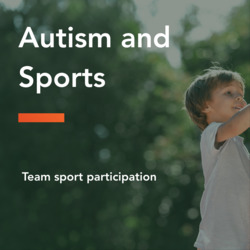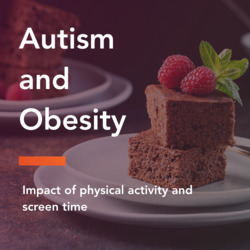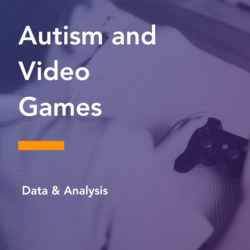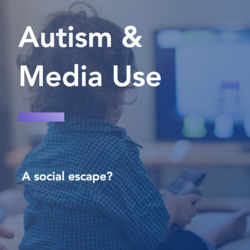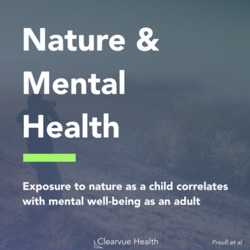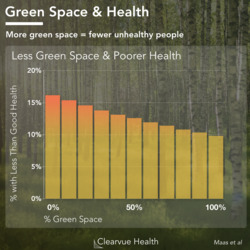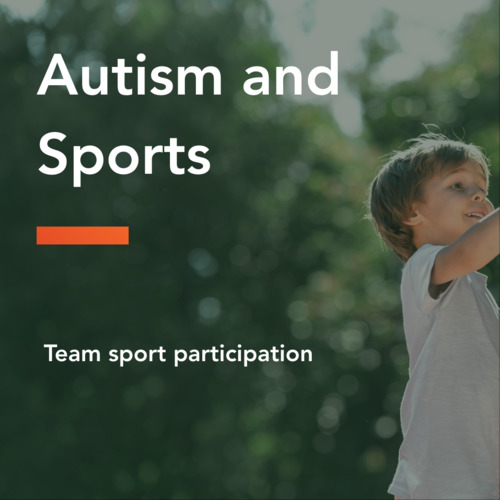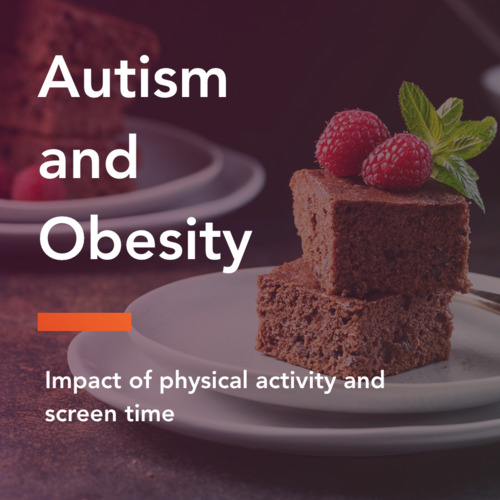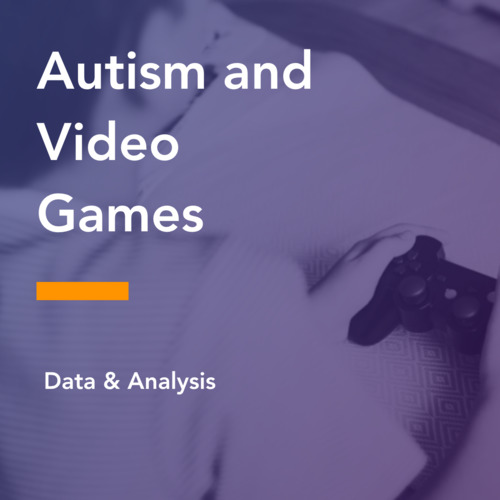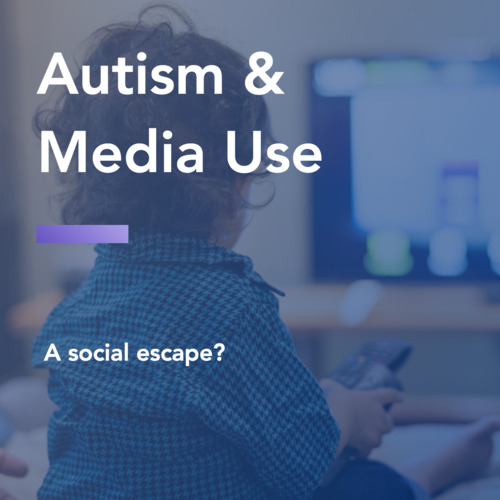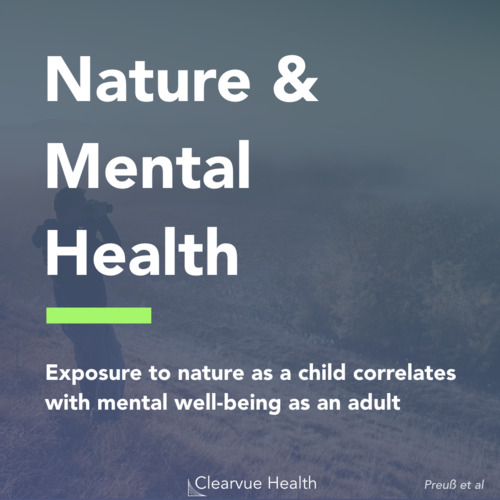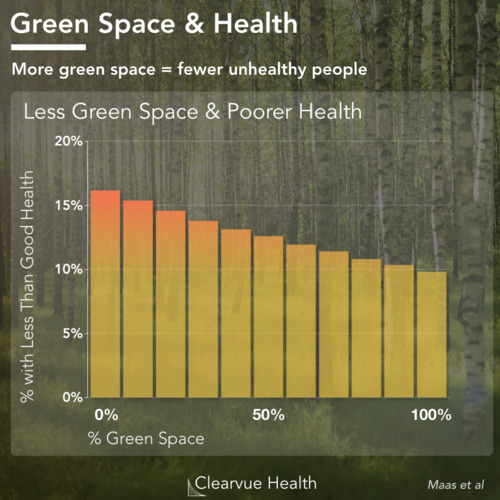The Link Between Pesticides and Autism

Figure 1: The Link Between Pesticides and Autism. A new case-control study examined the link between autism and pesticide concentrations. They matched 2,961 kids with autism to 35,370 kids without autism. They then compared the relative exposure of each child to pesticides, as measured by pounds of pesticides applied to farms and fields within a radius of 2000m.
A new study suggests that exposure to certain pesticides may increase the risk of autism.
What is particularly concerning about the study is that the results appear consistent with previous studies on this link and what we know about neurobiology.
Researchers examined whether kids growing up around Californian farms using certain pesticides had a higher risk of developing autism.
They matched up 2,691 cases of autism with 35,370 kids who did not have autism. They then calculated the amount of pesticides used in surrounding farms for each child.
They wanted to answer the question: Did the mothers of the children who developed autism live around farms that used more pesticides?
Source: Prenatal and infant exposure to ambient pesticides and autism spectrum disorder in children: population based case-control study
Case control studies are useful for examining whether a certain risk factor is associated with a specific outcome. In conducting the study, researchers first find a group of patients with the condition that they are interested in studying. They match the patients that they are studying with a larger group of volunteers who have similar characteristics but do not have the target condition. They then look at which risk factors were more likely to be present among subjects with the target condition. For example, a case control study looking at autism risk factors will find kids with autism and match them with kids without autism who share similar characteristics to see which risk factors are more common among the kids with autism
The Symptoms of Autism
Autism Spectrum Disorder
The Key Deficits in Autism Spectrum Disorder
5 Worst Pesticides for Autism
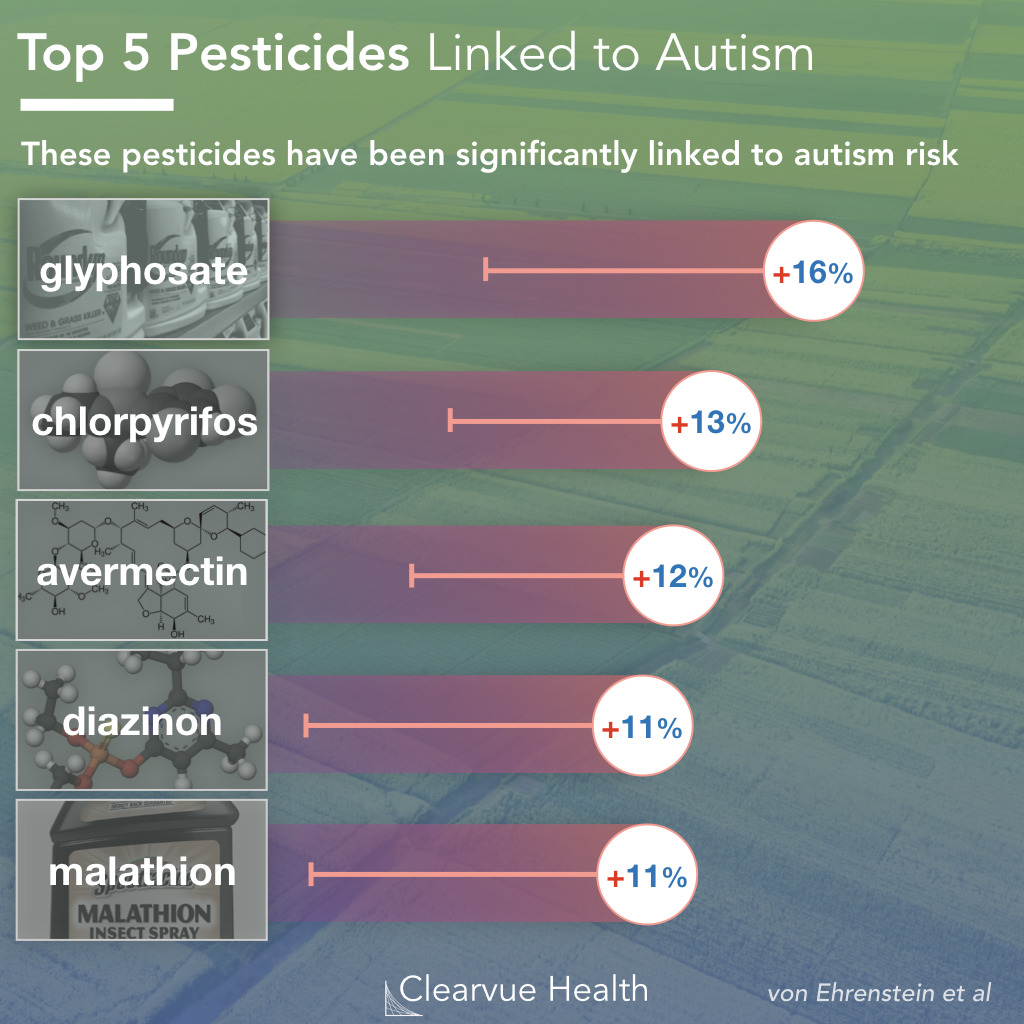
Figure 2: 5 Worst Pesticides for Autism. Glyphosate had the strongest link to autism. Kids who grew up around farms using a significant amount of Glyphosate had a 16% higher risk of developing autism. Chlorpyrifos was associated with a 13% higher risk. Avermectin was associated with a 12% higher risk. Diazinon was associated with an 11% higher risk. Malathion was associated with a 11% higher risk.
Researchers found very clear and convincing evidence showing that kids who had autism were significantly more likely to be born and grow up around farm using certain pesticides.
Some pesticides were clearly worse than others. Of the 11 pesticides examined, only around half were associated with a significantly higher risk. The pesticide with the highest risk was Glyphosate, otherwise known as Round-Up, which was developed by Monsanto.
Pesticides & Intellectual Disability

Figure 3: Pesticides & Intellectual Disability. While the dataset was smaller, researchers found significant links between pesticide exposure and autism/intellectual disability comorbidity. Permethrin was associated with a 46% higher risk. Diazinon was associated with a 41% higher risk. Methyl Bromide was associated with a 33% higher risk. Glyphosate was associated with a 33% higher risk. Chlorpyrifos was associated with a 27% higher risk.
Pesticides were also linked to a significantly higher risk of intellectual disability among autistic children. Mothers who were exposed to permethrin, one of the studied pesticides, during pregnancy had a 46% higher risk of giving birth to a child with autism and intellectual disability.
Keys to Health
This study provides some of the best data to date on the link between autism and pesticides. While we don’t know for sure whether autism is caused by pesticides, this data shows a clear and convincing correlation between the two. As with all case-controls studies, it is possible that the correlation does not mean causation. A 3rd factor such as income may be correlated with both autism and pesticide exposure.
In any case, this research provides good reason to conduct further research on this link.
Additionally, since this link appears only for specific pesticides, this research suggests that it may be worthwhile to switch from riskier pesticides to relatively safer pesticides.
+
Strength of Findings - Researchers found very clear findings with strong statistical significance. These findings are relevant and important to clinical practice.
+
Sample Size - The study used a large enough sample size to find clear evidence on the link between autism and pesticide use.
-
Study Type - Researchers used a case control method. For a rarer condition such as autism, this method works relatively well since it allows researchers to gather data without following a extremely large group of people. However, it suffers from potential bias and is not as reliable as a clinical trial or a cohort study.
Autism Speaks
We know that exposures to potentially toxic chemicals during pregnancy threaten the developing child’s health. To the extent possible, women who are pregnant or trying to conceive should become aware of such chemicals in their food, water and general environment. To the extent possible, they should take steps to reduce or eliminate exposures.
Journal watch
It is surprising that the risk for autism with exposure to potential neurotoxins is so low. Although some pesticides appear to carry risk, no compelling class effect is likely to emerge; researchers will need to focus on specific compounds, to cast a broader net for adverse neurodevelopmental outcomes, and to assess risk in the context of potential genetic liability.
The Guardian
Irva Hertz-Picciotto, the paper’s lead author and director of the UC Davis environmental health sciences centre, said: “We have compelling evidence from dozens of human studies that exposures of pregnant women to very low levels of organophosphate pesticides put children and foetuses at risk for developmental problems that may last a lifetime. By law, the EPA cannot ignore such clear findings: It’s time for a ban not just on chlorpyrifos, but all organophosphate pesticides.”
Clearvue Health is not affiliated with above organizations. The information above is provided to highlight and link to useful further reading.
Known Autism Risk Factors
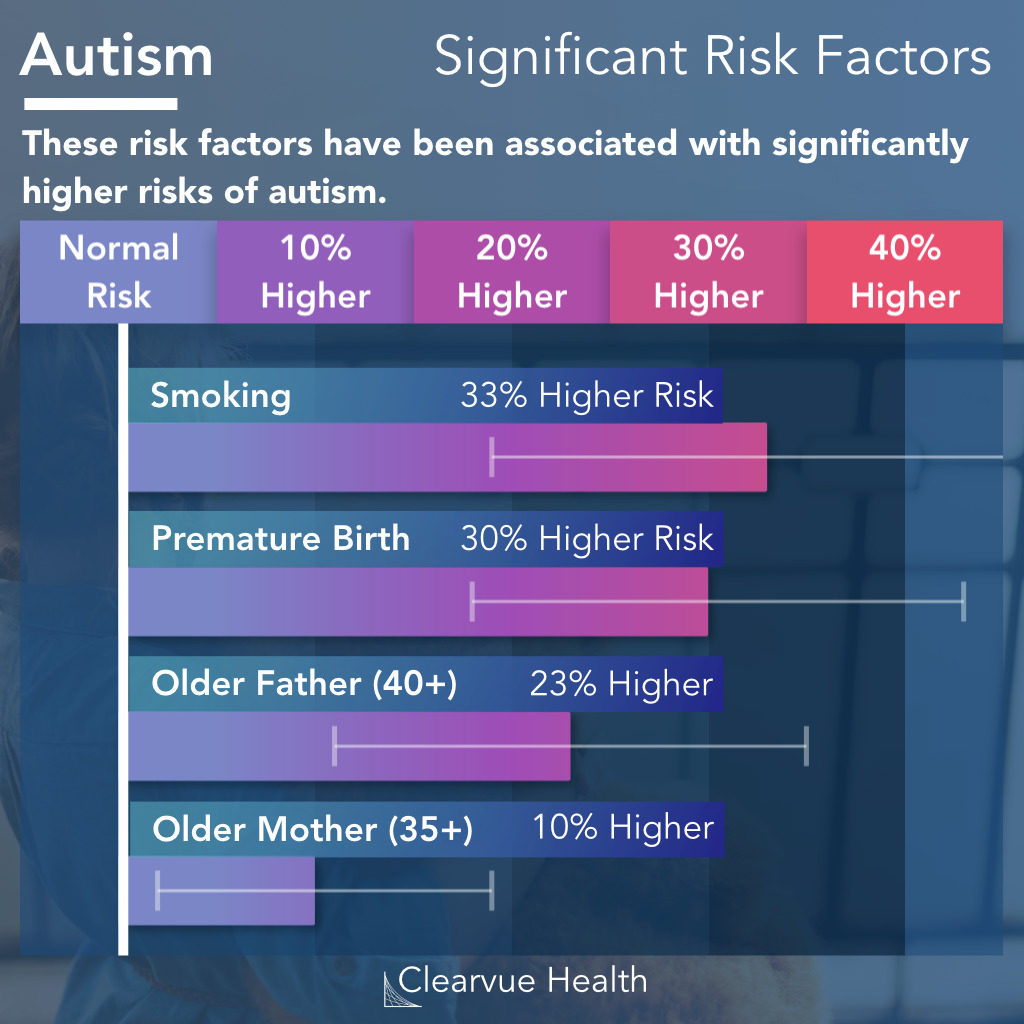
While the jury is still out on the link between autism and pesticides, there are other known risk factors that are much better documented and understood. Smoking, premature birth, and older parents at birth are all associated with significantly higher risks of autism.
Microbiome and Autism
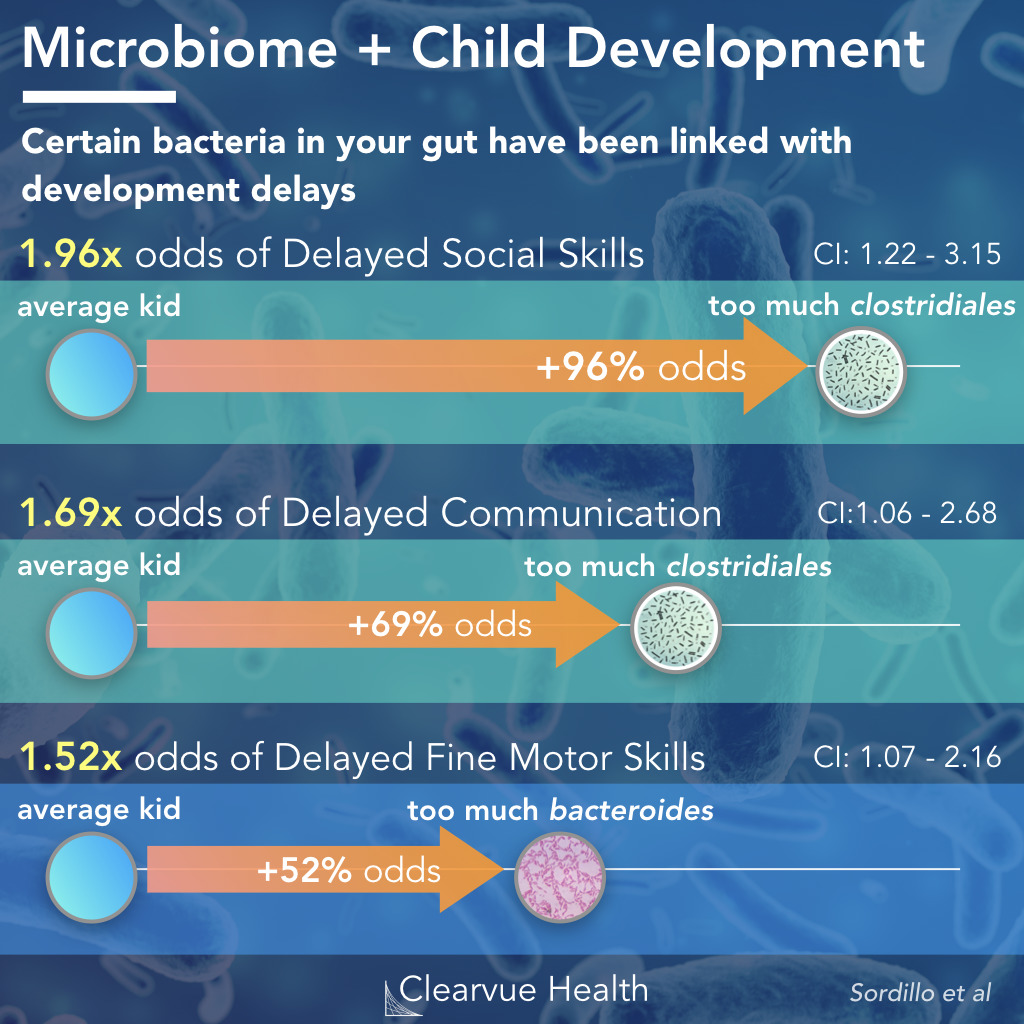
A recent study out of Harvard found that the microbiome has a strong effect on child development. The different types of bacteria a child has in their gut correlates with how they will develop physically and behaviorally.
Kids with lots of clostridiales bacteria in their guts were shown to have approx. 1.96x the odds of delayed social skills (95%CI = 1.22-3.15).
These same kids also had 1.69x the odds of delayed communication. (95%CI = 1.06 - 2.68)
Read more here






